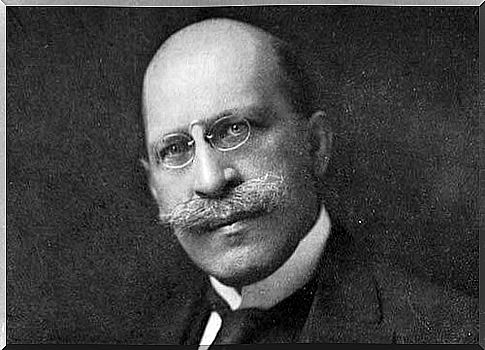What Is Applied Psychology?

Psychology is often conceived as a great tree with infinite branches to try to understand human behavior. Thus, and among all this set of derivations and sheets, there is one especially useful: we are talking about applied psychology, one that tries to give concrete solutions to the problems that occur in our daily lives.
It is quite possible that more than one reader will feel somewhat surprised. Isn’t that what psychology has always done? Has this science not focused since its inception on helping, responding to and supporting the most common and complex needs of human beings? Well, it must be said that as surprising as it may seem, the answer is no, it was not always like that.
Psychology in its origins was more focused on the compilation of information and the understanding of such elementary psychological processes as attention, memory, learning or language … All this passionate, immense and always in constant expansion area configures what is known as “basic psychology.”
For its part, it was not until the late 19th and early 20th centuries that, thanks to the German-American psychologist Hugo Münsterberg, a new leap was made in the history of psychology. This vast science was finally oriented towards the search for practical and real solutions for the human being, using all that knowledge generated by basic psychology to transform our scenarios, to enhance learning, well-being and health of people. As we can see, it is almost impossible to conceive both areas separately. Basic psychology and applied psychology are two fundamental branches of the same tree. A spectacular tree that will never stop growing to improve our environments and our quality of life.

Hugo Münsterberg: an objective man who laid the foundations of applied psychology
The biographers of Hugo Münsterberg say that he used to read Kant and that although at first he had a good relationship with William James after he proposed to work in his psychology laboratory at Harvard University, things did not end too much between them. well. It is said that William James had a certain interest in investigating the so-called paranormal phenomena, something that Wilhelm Wundt’s disciple could not conceive and accept as he was a staunch lover of the objective, and in essence, the practical.
Münsterberg cataloged everything that escaped the logical and tangible as the “psychology of the abracadabra. ” Perhaps for this reason, and also knowing that his main interest was to increase productivity in companies, he always felt a certain tension with those academic colleagues who understood psychology from the laboratory, from the point of view of observation and experimentation in order to publish an article and perhaps demolish some theory preconceived by other colleagues.
If there was a reason why Hugo Münsterberg laid the foundations of applied psychology, it was for a very specific objective: he wanted to improve the skills of workers in that context where industry and Taylorism already demanded new profiles, people who are more apt and trained to do so. a more complex work environment.

Thus, and despite the fact that Münsterberg died early in his early 50s, his contribution to the field of applied psychology was decisive, as well as immense. He established the origin of industrial psychology, developed multiple tests on professional capacity and even laid the foundations of legal psychology by creating a scale to assess the reliability of testimonies.
The different aspects of applied psychology
We said at the beginning that a large part of the tools and knowledge that applied psychology uses come directly from basic psychology. Now, it must be said that as always happens when we carry out any practical work, the application and development of a task itself ends up generating new knowledge, new data and concepts. Therefore, it is not difficult to understand that many times applied psychology can achieve a certain independence from that sister branch that is basic psychology and that tries to give rise to it.
In this way, we also understand that applied psychology can have infinite fields of action, areas that cover many of our most everyday contexts and where thanks to its immersion we can find solutions, enhance skills, improve processes, innovate … etc. Let’s look at some examples below.

- Health psychology. Although this area has points in common with clinical psychology, it can be said that they are two different disciplines. Health psychology analyzes the relationship between behavior and physical disorders and seeks to prevent and treat different diseases.
- Clinical psychology. He focuses his field of work on preventing and treating dysfunctional behavior in order to improve our quality of life and our mental well-being.
- Sports psychology. It seeks to enhance the performance of athletes, reducing, for example, anxiety and improving group work in sports teams.
- The psychology of organizations. This is, together with clinical psychology, the two best known aspects of applied psychology. In this case, what is sought is to improve the work environment, solve problems, train, train, enhance skills, manage the human resources of any organization …
- Educational psychology. We are facing another important area, where applied psychology makes use of the basics to improve teaching, methodologies, to understand how students learn and provide them with better resources and mechanisms in their day-to-day life.
- Environmental Psychology. In this case we have an area as essential as it is interesting to understand how people relate to their environment and how the environment itself can affect our behavior.
- Forensic psychology. In this case, the work of the professional is not limited only to the investigation of crimes or any criminal act. The validity of the testimonies, conflicts over custody, attention to victims, etc. is also analyzed.
- Psychology of advertising. One thing we all know is that advertising is an integral part of the consumer economy. Understanding what drives the buyer to choose certain products, knowing what unconscious processes regulate their desires and needs, are key aspects for this very interesting area of psychology.
As we can see, each field of action gives rise to a differentiated profile in the exercise of the profession. They are aspects of applied psychology that are part of our society where we undoubtedly lack many more fields to be detailed, such as emergency psychology, road safety, aging, etc. They are just small examples that give us to understand the multiple scenarios where psychology can be valuable, where good professionals will always try to respond to every need, to every problem.
Bibliographic references
Münsterberg, Hugo (1914) “Psychology and Industry”. Psychology Press
Münsterberg, Hugo (2008) “Psychology and Social Sanity” Psychology Press
Muchin, Paul (1994) “Applied Psychology”. Paidos
Olivares Rodriguez, José (2012) “The exercise of applied psychology” Pirámide









